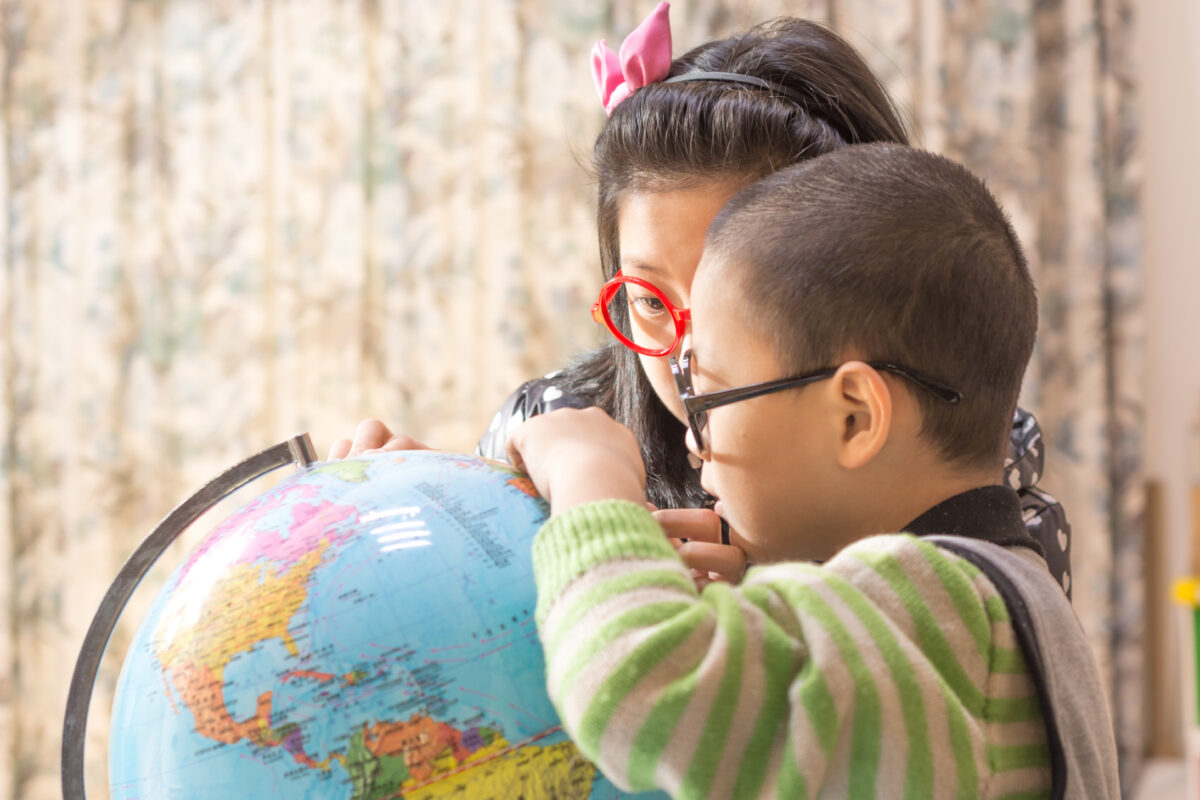Multilingual Children in Preschool

For a considerable amount of time, we have been witnessing the phenomenon of various languages and, above all, cultures interacting with each other. This is also happening in the preschool environment, which, in our opinion, adds significant value! It creates a unique opportunity to foster multicultural interaction for children, acquire new communication skills, and develop interpersonal abilities.
Integration takes a two-pronged approach
On the one hand, we strive to teach non-native-speaking children the Polish language and model the adoption of prosocial attitudes and behaviours. On the other hand, we work with Polish children to teach them tolerance for diversity and openness to exploring new cultures and customs. This dual communication and planned actions engage everyone in the integration process, working towards a common goal.
Language is not a barrier!
Parents and caregivers often hesitate to send non-native-speaking children to facilities due to their lack of knowledge of the Polish language. However, it’s important to remember that this doesn’t hinder children from forming relationships or adapting to new conditions. The teacher’s team understands that language use is always contextually linked, with most expressions tied to specific gestures and behaviours. Observing these cues helps children understand the current situation and convey messages. The focus is on content rather than linguistic form, and teachers are open and accepting of every expression from non-native-speaking children. They strive to understand incomplete statements and clarify any uncertainties with the child. In the facility, there are no penalties or admonishments for language errors or communication difficulties. Teachers aim to be understood by the child, so they tailor the form of their statements to the child’s imperfect abilities.
We model correct behaviours for children
Concerns about whether children will accept non-native-speaking peers into their group are unfounded. Teachers play a crucial role in the social integration of foreigners, serving as role models for their charges. Considering the time children spend with our educators, they become a significant part of the values and behaviours acquired, observed, and then replicated. In our facilities, we ensure that each teacher can communicate with a child in both languages and exhibits an open, respectful, and empathetic attitude towards non-native-speaking children.
In fostering multiculturalism and acquainting children with different languages, we focus on:
- What unites us rather than what sets us apart (supporting group integration, teaching children about diversity, and establishing common goals).
- Teaching children respect and tolerance for every individual, regardless of their origin, appearance, or identity.
- Addressing conflicts and solutions rather than focusing on the nationality of those involved in a conflict.
- Emphasizing that native language, religion, and culture do not serve as benchmarks for categorizing children as good or bad. We highlight the importance of the behaviours we represent rather than the place of origin or lack of knowledge of a specific language.
Supporting children in preschool is multi-faceted:
- Conducting interviews with parents to understand all possible needs of the child, especially those they may not be able to communicate.
- Engaging children in thematic games to enrich their vocabulary and build good relationships with peers.
- Assisting in overcoming language barriers through specific games and techniques, such as comparing the naming and pronunciation of specific objects or activities in the child’s native language and Polish.
- Considering the emotional needs of the child during lessons, games, and other activities to reinforce their sense of security.
Multiculturalism is a value!
Multicultural education aims to create conditions for children’s development, equipping them with a positive attitude toward a multiethnic society. This provides an opportunity for children to develop their own identity, become familiar with their culture, music, and traditions, and share this knowledge with others through the exchange of information and experiences. This is the space we strive to create!
Let’s meet!
We invite all of you to an individual meeting with the headteacher. This will be a great opportunity to find out about our educational offer, ask questions, and visit the kindergarten. You can book one visit for a given day.












